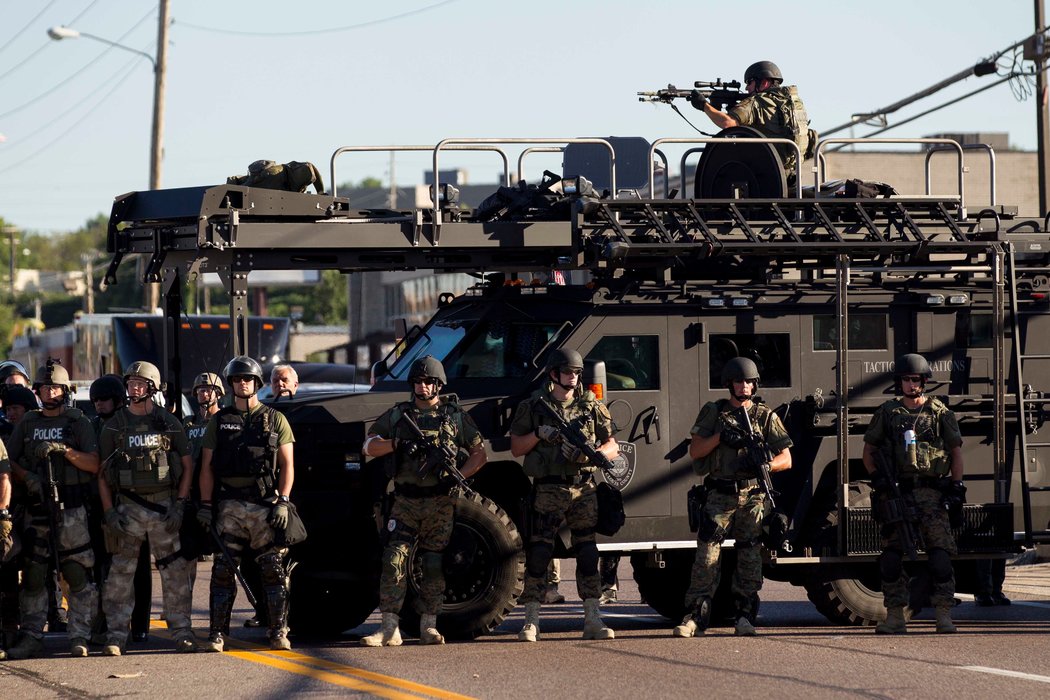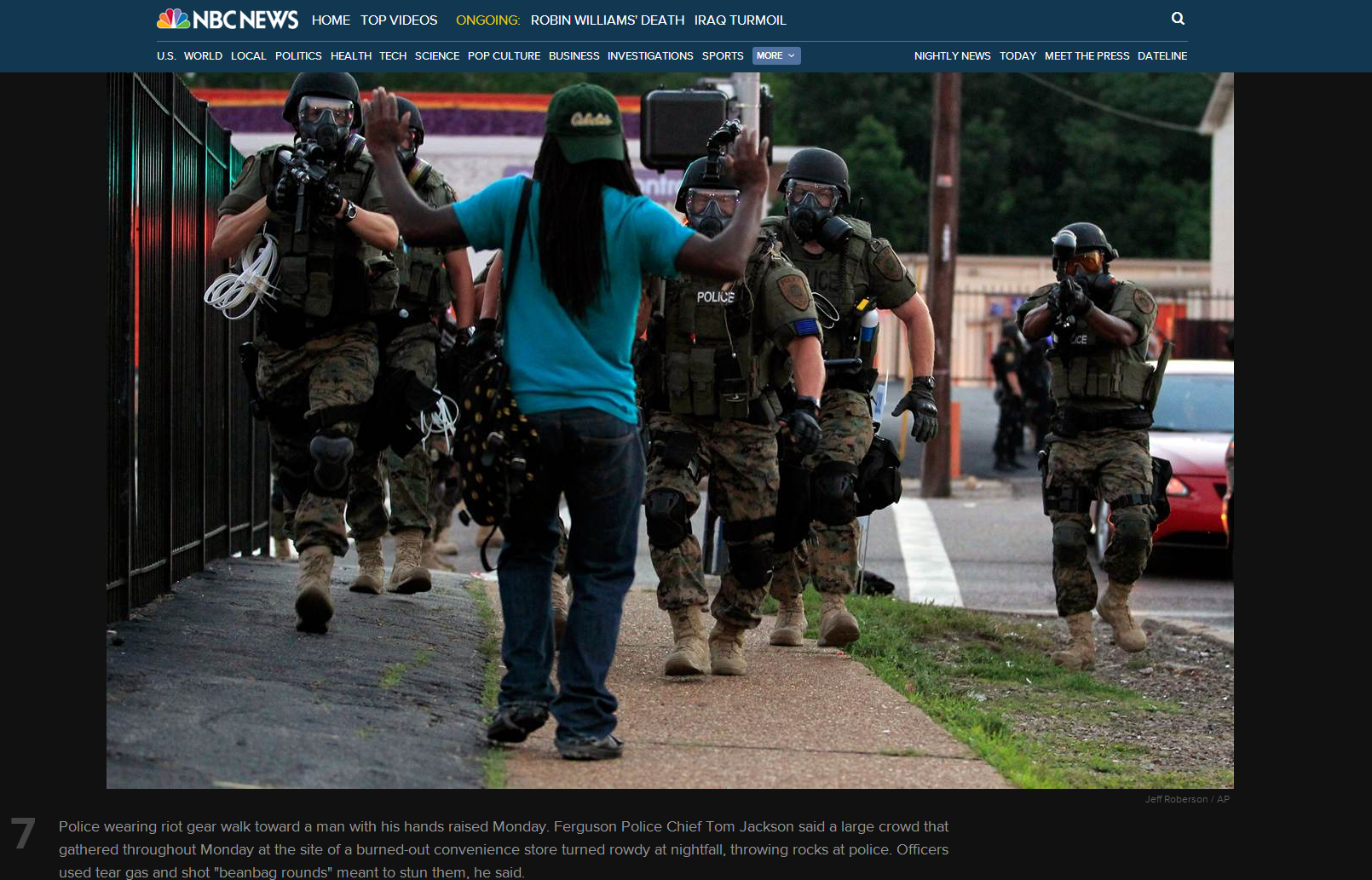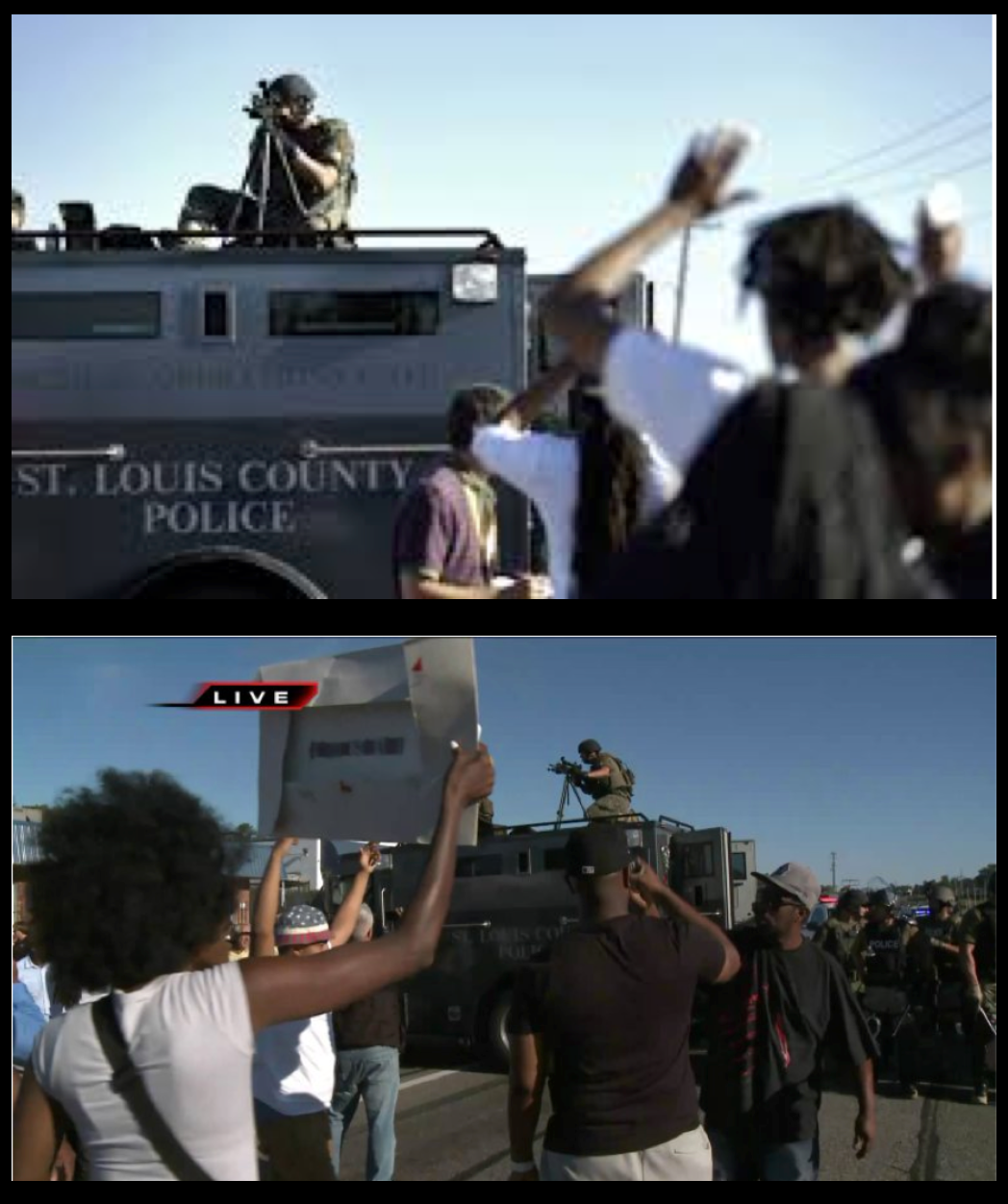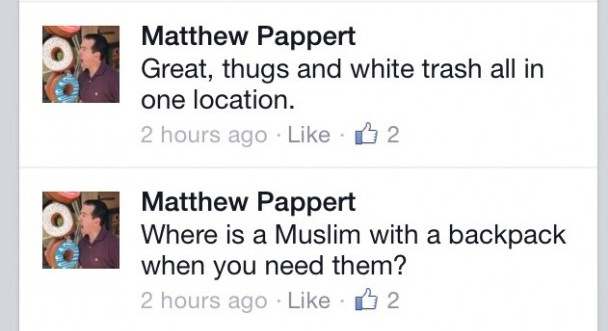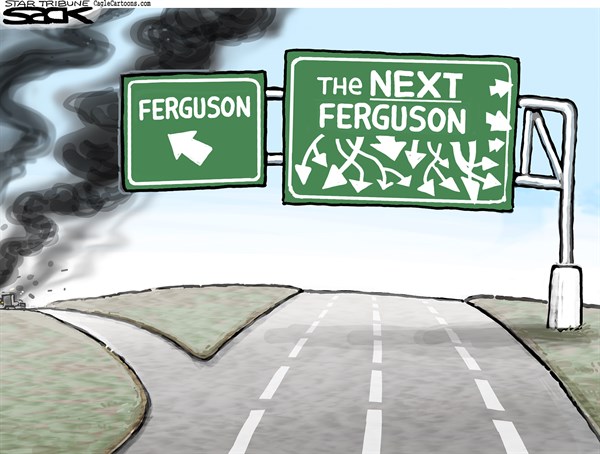Is the over-militarization of the police and the “war” on drunk driving appropriate? Pennsylvania State Police and MPOETC seem to think so
No longer science-fiction – wars are being waged by the government on American citizens.
In the American military science fiction television show, Battlestar Galactica (BSG), military Commander William Adama was debating the idea of policing the citizens with military forces. During this discussion he said:
There’s a reason you separate military and the police. One fights the enemies of the state; the other serves and protects the people. When the military becomes both, then the enemies of the state tend to become the people.
Unfortunately this concept is no longer science fiction. Heck, its no longer fiction.
There is a lot to write about the turmoil and the issues that come up because of the recent events in Ferguson, MO. It has brought to the forefront the national heated discussion into what some people term “the over-militarization of the police.” People point to the federal DOD/DLA 1033 program that issues tactical and basic equipment from military surplus that is not only in Ferguson, MO but all over the US as a symptom of this over-militarization.
I see it as more basic than that. It is a very dangerous attitude that has been festering for at least the last 13 years and has really come into a force of its own over the last 3 or so years. It is the whole scale move away from the public servant model of “protect and serve” towards “us versus them” or “war on (fill in the blank)” model.
Meanwhile in the land of the free, just take a look at this one video of what is being called “Officer GoFuckYourself” to see the new norm:
The irrefutable result is that people who have done nothing wrong fear any police interaction. People don’t like the police being in their neighborhood. They are largely seen as looking to get people into trouble rather than helping the safeguard community. Gone are the days of officer friendly. Here to stay is the image of the jack booted storm trooper with guns blazing.
This modern attitude of policing is referred to as “war” such as “the war on drugs,” “the war on crime,” and the “war on DUI.” In reality what it is is the war on our neighbors, our friends, our husbands, our wives, our children and on one another.
From the pictures of the officer on top of the Lenco BearCat (MRAP-style vehicle) pointing his weapon at what by all accounts at the time of this picture was a lawful assembly of people to the stunning picture above of armed police in Furguson pointing their loaded weapons at a man with his hands up, the “war” mentality has to stop!
I’m all for free speech, but Officer Dan Page and his hate doesn’t belong in policing. When he says “I don’t trust nobody and I hate everybody. I hate y’all too I hate everybody. I’m into diversity. I kill everybody” and “I’m a killer. I’ve killed a lot. And if I need to I will kill a whole bunch more. If you don’t want to get killed, don’t show up in front of me. It’s that simple.” I believe that he has earned a rubber gun. And the social media posts by Officer Matthew Pappert are free speech, but shows that he does not belong in policing either.
And

Lest you think that it is just a Furguson, MO thing. This attitude is also here in the mid-state. Here in Pennsylvania.
For over 5 years, this office has been suing our state under the Right to Know Law (think of it like the satte form of the Federal Freedom of Information Act) to simply get the course outline for the Municipal Police Officers’ Education and Training Commission (MPOETC) Act 120 (Basic Officer Training) Section VIB (DUI enforcement). It has gone up and down the appellate courts and now has finally ended its briefing schedule just a few days ago on its remand. It is up to the specially appointed master and the Office of Open Records (OOR) to determine whether or not the lesson plan is subject to the public’s right to know. The arguments for and against this simple request and the massive waste of resources that have gone into defending against public disclosure of something that every single Municipal police officer has been taught for decades here in Pennsylvania is not the point of this post. We respectfully wait for the decision of the OOR on the merits of McShane v. HACC.
What I did want to do is highlight some of the direct quotes in the Initial Brief and the Reply Brief from Attorney Jordan G. Spahr, Assistant Counsel for the Pennsylvania State Police, Governor’s Office of General Counsel-Commonwealth of Pennsylvania that I see as totally scary. This is this “war” on citizens approach that is so very improper. Consider these quotes from the first brief:
Since there is no statutory definition of “preparedness,” alternative definitions are offered here: (1) “a state of readiness, esp. for war;” (2) “The act or process of devising the means necessary to commit a crime.” THE OXFORD AMERICAN COLLEGE DICTIONARY 1072 (2002); BLACK’S LAW DICTIONARY 1220 (8th ed. 1999). The two definitions above resonate a theme of hostility with its references to war and criminal acts.
. . . Since the factual circumstances of this request are a matter of first impression, some discussion of persuasive, non-legal authority is appropriate. A military operation, which shares many attributes of criminal operations, involves intelligence gathering. This subsection explains, through analogy, how criminal enterprises can leverage police training information to jeopardize the preparedness of law enforcement.
Marine Corps Doctrinal Publication 2 (“MCDP-2”), Intelligence, defines intelligence as “knowledge about the enemy or the surrounding environment needed to support decision-making.” MCDP-2 at 6-7 (Dep’t of Navy 1997). It also involves identifying information about ourselves that hostile actors can exploit. Id. at 5-6.
MCDP-2 explains how intelligence can be separated into two major classifications: descriptive and estimative. Id. at 42. Descriptive intelligence tends to ask which conditions currently exists and what the enemy can and cannot do, whereas estimative intelligence deals with anticipating capabilities and limitations. Id. at 44-45. The information used to develop descriptive and estimative intelligence must be objective, thorough, accurate, timely, usable, relevant, and available. Id. at 39-41.
In the reply brief, he writes:
Since the RTKL is a remedial statute that balances government transparency with the need to protect sensitive information, the occasion and necessity of the statute reflect the need to shield law enforcement preparedness in the backdrop of law enforcement operations and tactical necessity, as PSP is considered to be a paramilitary organization.
It is beyond dispute that Pennsylvania police officers routinely face a potential of hostility, criminal acts, and incidents that substantially overlap with the nature of tactical environments, such as war.
What’s next?
Could this picture below be what we can expect for a no accident DUI?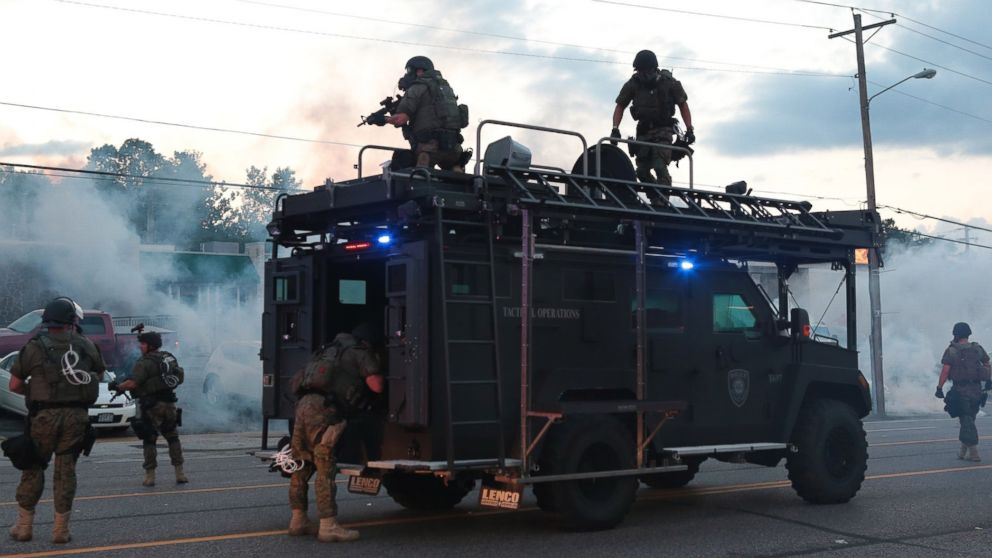
MRAPs pulling you over for a suspected DUI?
Standardized Field Sobriety Tests at gunpoint?
Tear gas for refusal?
Holding you down to take your blood for a no-accident, no death DUI? (Wait. That’s already happening in some states. Is PA next?)
[Special thanks to Josh D. Lee for helping me to get this post right.]
